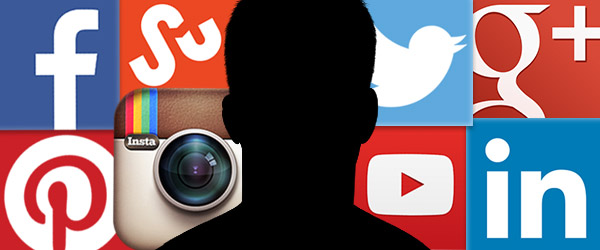Facebook's Vulnerabilities Surface

Adam Smith famously referred to "the invisible hand" of the free market in his landmark book The Wealth of Nations,
and with that made himself one of the very first political economists.
Smith's observation was so on point that most of us assume markets run
through the agency of individuals pursuing their enlightened
self-interests. A lot of this drove the evolution of CRM as a tool for
tracking customers.
If you pay attention today, you can notice the not-so-invisible hand
functioning in multiple areas. For instance, if you've been following
the aftermath of the school shooting in Florida, you know that a group
of kids kick-started a nationwide activist movement to get something
done about gun safety. The #MeToo movement -- women banding together to
change the workplace by eliminating sexual harassment -- is another
example. So is the Black Lives Matter movement.What they have in common is the initiative by engaged individuals to cause change in what essentially are "marketplaces" in the broadest conception of that term. Much closer to home, even in the technology world we're seeing the stirrings of user dissatisfaction with social media, and it's not clear where this will go. Its impact on CRM could be big, because social has become one of the key channels linking vendors and customers.

Grudging Assistance
A recent article in Wired, "Facebook Doesn't Know How Many People Followed Russians on Instagram" by Issie Lapowsky, documents Facebook's foot dragging on producing information for the various inquiries surrounding the 2016 American election.Jonathan Albright of Columbia University's Tow Center for Digital Journalism, has been looking at the details and producing information that's uncomfortable to Facebook. He's been quoted in Wired, The New York Times and elsewhere.
Albright's work has uncovered many things concerning Facebook's approach to the investigation that you might consider passive-aggressive. For instance, when asked why it had not produced information about how many people had seen Instagram information created by Russian-operated troll accounts, a Facebook spokesperson said, "We have not been asked to provide that information." (Facebook owns Instagram.)
It's not necessary to repeat the article here; it's worth reading, but that's your call. It documents how Facebook has assisted investigators so far, but only if they ask the right questions. The final paragraph summarizes this point:
"Facebook has shown consistent reticence in detailing how these trolls infiltrated its platform and who that propaganda reached. They've repeatedly had to correct prior statements about the reach of these ads and accounts. By working with outside researchers like Albright, the company might be able to paint a more complete picture, but Facebook has been unwilling to open its data up to researchers."It's not necessary to re-examine every time Facebook denied its involvement or disputed findings that upwards of 150 million people saw content from the Russians, or that all the U.S. intelligence services have agreed that the Russians did indeed hack the election. That's all very interesting from another journalistic angle but not this one.
When Doubt Sets In
The totality of Facebook's unwitting involvement in the hack combined with its efforts to downplay its importance brings up a bigger issue for Facebook and, by extension, all social media: How useful are Facebook and social media generally, considering the Russian hacks?A glib answer might be that they don't have to be terribly useful because they are free, and users get whatever utility they want from using them. That argument misses the point. If Facebook's utility were small or especially if were disputable, its business model would be in serious trouble.
Social media's primary product always has been the user. It is valuable to each of us when we use it to gather information about our personal graphs, and we knowingly pay an in-kind fee by letting social sites collect data about us, which they then can sell to advertisers. It's a classic network effect -- the greater the audience, the more valuable the output of its data.
But what happens if the veracity of information on social media is in doubt? Social media's value is directly proportional to its veracity. If one can doubt that veracity, then it might be prudent to seek alternatives. People and corporations that invest heavily in using information from social media might begin doubting if their investments deliver value.
My Thoughts
Facebook's approach to the hacking scandal so far has been to deny and ignore it, only admitting something when there's no other choice. This presents another problem associated with stonewalling -- dissipating trust. However unpleasant the facts, the more a party tries to ignore or hide them, the lower the market's trust in that entity.The truth value of what people post on the networks and what they believe about the truthfulness of others' posts makes social media's world go around. That truth is what makes some people spend hours a day surfing the sites. Once that trust begins to erode, even a little, the business model can begin to unravel.
Whoever is advising Facebook on its strategy should reconsider. It's human nature to dislike dealing with criticism and serious accusations. However, impinging the free flow of information won't solve the problem. Free markets depend on transparency, and Facebook is a free market of ideas. If it stops being that, or even if people just stop believing it, then there's no reason for them to continue using it
Commentaires
Enregistrer un commentaire